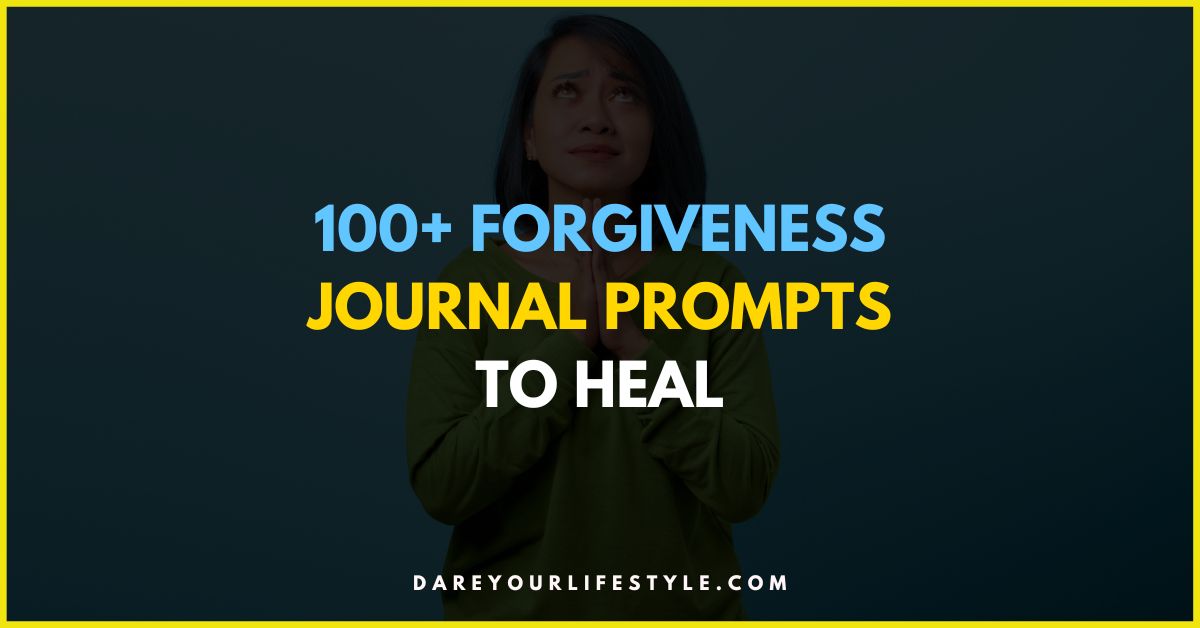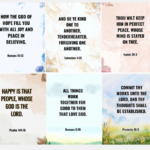Disclaimer: This post may contain affiliate links, meaning we get a small commission if you make a purchase through our link at no extra cost to you. For more information, please visit our Disclaimer Page.
Most people are surprised by how light their heart feels once forgiveness starts to take root. That lightness rarely arrives by accident. It grows from small, honest moments of reflection, tiny acts of courage on the page, and a steady willingness to trade resentment for peace. If you are here, you are already leaning in that direction.
This guide gives you a clear understanding of forgiveness, why journaling accelerates healing, and a practical framework that you can use today. You will also find more than 100 prompts organized by purpose to help you release, repair, and rebuild.
Key Takeaways
- Forgiveness is a shift in motivation away from resentment and toward compassion, without minimizing the wrong.
- It is not forgetting, excusing, or automatic reconciliation. Boundaries can remain.
- Writing is one of the fastest ways to organize emotional chaos, reduce rumination, and invite empathy.
- Short, regular entries beat long, occasional ones. Consistency builds new emotional habits.
- You do not need to be ready for full forgiveness to benefit. Journaling can hold your anger while guiding you toward relief.
What is Forgiveness, Really? (And What It Isn’t!)
Forgiveness is an intentional decision to reduce hostility and release the grip of bitterness. Psychologists often describe it as a change in motivation: less avoidance and revenge, more goodwill or at least neutrality. Spiritually, many traditions treat forgiveness as a brave act of letting go, freeing the heart to love again. Across cultures, it can support either personal peace or social harmony, but the thread is the same: loosening anger so life can move.
That clarity helps you avoid needless pressure. Forgiveness is not a pass for injustice. It is not a demand to resume a relationship. It does not erase your memory or rewrite history. It is a way to heal without denying what happened.
❌ Forgiveness is NOT:
- Forgetting the hurt ever occurred
- Condoning or excusing harmful behavior
- Immediate reconciliation or restored trust
- A sign of weakness or naiveté
- A quick, one-time event that solves everything
- Forced compliance with other people’s timelines
✅ Forgiveness IS:
- Releasing the emotional hold a memory has on you
- Choosing compassion or at least neutrality while still acknowledging facts
- A process that unfolds over time
- Compatible with firm boundaries and accountability
- A strength that protects your health and peace
- A gift you offer yourself first
Common myths can obscure that reality, so keep these clarifications nearby.
| Misconception | Clarification |
|---|---|
| Forgiveness means forgetting | You can forgive and still remember. The emotional charge fades even if the memory remains. |
| It lets harmful behavior off the hook | You can oppose injustice and forgive at the same time. Consequences and compassion can coexist. |
| Reconciliation is required | Forgiveness can be unilateral. Trust and contact are separate choices. |
| It is a simple act of will | Emotions matter. Real forgiveness involves new understanding and a softer stance. |
| It happens instantly | Most people experience gradual shifts, not lightning bolts. |
Why Journaling is Your Secret Weapon for Forgiveness
Writing turns vague feelings into clear language, which reduces confusion and opens space for new interpretations. Over and over, research on expressive writing shows it:
- Encourages cognitive processing, helping you make meaning from painful events
- Provides a safe outlet to release anger, grief, and fear without harming relationships
- Builds self-regulation by slowing impulses and strengthening reflective awareness
- Reduces rumination, the mental loop that keeps wounds raw
🎯 The Power of Pen to Paper:
- Words organize emotion. When you describe an event and how you felt, your brain shifts from raw reactivity to structured reflection.
- Private pages invite honesty. You can say everything that is unsayable elsewhere, then choose what to keep.
- Reframing becomes real. Seeing your thoughts in black and white makes it easier to challenge distortions and write a kinder, truer story.
Setting Up Your Forgiveness Journaling Practice
Structure reduces friction. A few deliberate choices make this work feel natural instead of heavy.
📝 Getting Started:
- Name your purpose: Write a one-line intention on the first page. Example: I write to free my heart and act with integrity.
- Set a small daily window: Five to fifteen minutes is enough. Attach it to coffee, lunch, or bedtime.
- Choose a safe container: A password-protected app or a private notebook you can store out of sight. Safety invites honesty.
- Remove tiny barriers: Keep your pen and journal visible. Open a new entry before you go to bed. Little steps matter.
- Warm-up ritual: One deep breath cycle, a stretch, or a cup of tea signals your system that this is a caring space.
- Honesty first: Start each entry with I feel…, even if the words are jumbled. Truth on the page unlocks relief.
Your Journey Begins: 100+ Forgiveness Journal Prompts
Use these prompts flexibly. If a prompt stings, skip it for now and return later. If one opens a door, linger there.
Section 1: Prompts for Self-Forgiveness 🕊️
Understanding Your Inner Critic:
- What does my inner critic say about this mistake, word for word?
- Which part of that message is factual, and which part is an exaggeration?
- If a dear friend made the same mistake, what would I say to them?
- What values was I trying to honor at the time, even if I missed the mark?
- What pressures, fears, or blind spots influenced my choice?
- What would my wiser, older self say to me about this moment?
- Which labels do I use on myself that are harsher than necessary?
- How has this inner criticism tried to protect me, and where has it overreached?
- What evidence exists that I am more than this one action?
- What strengths did I show before, during, or after the event?
- What nuance does my critic miss when it paints me in black and white?
- If my inner critic had a job description, what boundaries would I set for it?
Releasing Guilt and Shame:
13) What exactly did I do, and what were the consequences for others and for me?
14) Which parts are guilt about behavior, and which parts are shame about identity?
15) Write a compassionate apology to myself that names the harm without attacking my worth.
16) What amends are possible, and what amends are not? Why?
17) What steps have I already taken, even small ones, to address this?
18) What beliefs about perfection are fueling my shame, and how can I soften them?
19) List three times I learned from mistakes and became more trustworthy.
20) What would it look like to accept responsibility without self-hatred?
21) Where did I learn that mistakes make someone unlovable, and is that belief accurate?
22) If I release shame today by 10 percent, what changes in my body and choices?
23) Write a letter from a compassionate mentor granting me forgiveness and guidance.
24) What lesson do I want to carry forward so this pain has a purpose?
Moving Forward with Self-Compassion:
25) I forgive myself for…, because I am committed to…
26) What boundaries or systems will help me act by my values next time?
27) Which supportive people can I enlist to keep me accountable, if needed?
28) What daily reminder will help me speak to myself with care?
29) Describe a day in my life when I fully believe I am worthy again.
30) What qualities I admire in others already live in me too, and here is where I see them.
31) Which small act of kindness can I offer myself this week?
32) What fear about forgiving myself still lingers, and what is a balanced response to that fear?
33) Write an affirmation that feels true, not cheesy, about my inherent worth.
34) What does letting go look like in action today?
35) How will I track progress without obsessing over perfection?
36) What new identity am I growing into because of what I have learned?
Section 2: Prompts for Forgiving Others 💖
Understanding the Hurt:
37) What happened, step by step, without interpretation?
38) How did I feel during and after, and where did I feel it in my body?
39) What boundary was crossed, and why does that boundary matter to me?
40) What was taken from me in this event, and what cannot be taken?
41) What do I wish the other person understood about the impact on me?
42) If I could say one sentence that captures the hurt, what would it be?
43) What have I done to protect myself since then, helpful or unhelpful?
44) What has holding on to anger cost me so far?
45) What fears keep me from releasing the resentment?
46) If I knew I would be safe, what would I allow myself to feel right now?
47) What would justice look like to me, in practical terms?
48) What would repair look like, and what is outside my control?
Exploring Empathy (Not Excusing):
49) What pressures, wounds, or limitations might have influenced their behavior?
50) What need might they have been trying to meet, poorly or selfishly?
51) When have I, as a human, needed grace while learning?
52) If I imagine them as a child, what do I see about their humanity?
53) What might they fear that I do not see?
54) Write their possible inner monologue before the event, without justifying it.
55) How would a wise mediator describe the situation to both of us?
56) Which parts of the story might I not know yet?
57) What values do we actually share, even if we live them differently?
58) What small detail, if true, would make their actions more understandable to me?
59) How does compassion for them also protect my health and energy?
60) What is the difference between understanding and agreeing, and how can I hold that line?
The Path to Release:
61) If I choose to forgive, what am I releasing, and what am I keeping?
62) What boundaries will I set to prevent repeat harm?
63) Write an unsent letter expressing every raw feeling, then write a second unsent letter releasing what I no longer want to carry.
64) Picture placing the burden in a box and setting it down. Describe what walking away feels like.
65) What ritual can mark my decision to live lighter?
66) What does reconciliation require that forgiveness does not?
67) What words would I use to state my boundary with clarity and calm?
68) What will I do if old anger returns next week?
69) What will forgiving free me to focus on instead?
70) What is my personal definition of a successful release today?
71) If I forgave by 1 percent, what action would reflect that shift?
72) How will I honor the lesson without reliving the pain?
Section 3: Prompts for Forgiving Life & Situations 🌍
Acknowledging the Unfairness:
73) Name the loss or injustice plainly. What changed in my life because of it?
74) List every emotion that belongs here, even the ones that feel inconvenient.
75) What expectations or dreams did this event interrupt?
76) What do I want to say to life, to fate, or to a higher power about this?
77) What control did I have, and what was outside my reach?
78) Where do I still argue with reality, and what is that argument costing me?
79) What parts of my identity feel most shaken by this?
80) If I let myself grieve fully for five minutes, what would I write?
Finding Acceptance and Meaning:
81) What strengths have surfaced in me because of this?
82) Which priorities have become clearer since it happened?
83) What support did I receive, and how did it help?
84) Write a letter to the person or situation I lost, sharing love and goodbye.
85) Describe a future scene where this pain is part of my story but not the center.
86) Identify one small area I can influence today and act on it.
87) What three things are still good, right now, even in the midst of this?
88) What phrase will I repeat when I slip back into why me mode?
Prompts for Releasing Guilt & Shame (Deeper Dive) ⛓️
Identifying the Roots:
89) When did I first learn to tie mistakes to worth?
90) Whose voice do I hear when shame gets loud?
91) Which rules about being good are too rigid for real life?
92) Draw a timeline of the event and note how my feelings changed along the way.
93) What stories about myself have I carried unchanged for years?
94) What evidence challenges those old stories?
95) What do I fear would happen if I fully forgave myself?
Path to Freedom:
96) Write a third-person account of the event to gain perspective, then respond with compassion to that character.
97) Create a two-column page: harsh judgments on the left, kinder truths on the right.
98) Compose a self-forgiveness letter from my future self, dated one year ahead.
99) List concrete amends or practices that restore integrity today.
100) Identify a mentor, text, or prayer that strengthens my kinder voice and copy a line that speaks to me.
101) Choose one symbol of release, like a stone or leaf, and write what it represents before setting it down outside.
102) Define progress in tiny steps: what is today’s one-inch move toward freedom?
Prompts for Moving Forward and Cultivating Inner Peace 🌟
Embracing Your Future:
103) Describe a day when my heart feels light. What am I doing and who am I with?
104) List three values that will guide me from here, with a small action for each.
105) Write a gratitude list focused on lessons, not events.
106) Record a recent moment of calm. What conditions helped create it?
107) Write a letter from my future peaceful self to me today with practical advice.
108) Name one courageous decision I will make this month in service of peace.
109) What does thriving mean to me now, and how has it changed?
Maintaining Your Peace:
110) Identify my top triggers and a plan for each one.
111) Create a short mantra that feels personal and convincing.
112) What boundaries protect my peace, and how will I uphold them with kindness?
113) Design a weekly reflection ritual I can actually keep.
114) Who helps me stay grounded, and how will I reach out regularly?
115) What signals tell me I need a reset, and what is my reset plan?
116) How will I celebrate small wins so my brain learns that peace is normal here?
Overcoming Common Forgiveness Blocks
Forgiveness work can stall for understandable reasons. Naming the barrier makes it easier to move again.
🚧 Common Blocks & Solutions:
- Fear that forgiveness equals weakness
- Write two lists: costs of holding on, benefits of letting go. Add one boundary I keep no matter what.
- Worry about repeat harm
- Draft a boundary script. Forgive in my heart, while choosing distance or conditions for contact.
- Rumination that will not quit
- Set a 10-minute timer for full vent writing, then shift to a perspective or gratitude prompt.
- Shame about not being ready
- Normalize the timeline in writing. I move at the speed of safety. One percent progress counts.
- Confusion about what forgiveness means
- Copy the definitions that resonate. Highlight that I can forgive and still expect accountability.
- Overwhelm from trauma
- Use short entries, facts first, and consider drawing or voice notes. Pace the exposure. Seek professional support when needed.
- Perfectionism
- Write a permission slip: I am allowed to be in progress and still worthy of care.
Integrating Forgiveness into Your Daily Life
- Make it routine: Pair five minutes of writing with a daily habit. Consistency matters more than length.
- Rotate formats: Bullet points, letters, diagrams, or audio notes keep the practice fresh.
- Track patterns: Star entries that mark turning points. Review monthly to notice momentum.
- Add mindfulness: One minute of slow breathing before and after you write increases clarity.
- Combine with action: Match insights with small behaviors, like a boundary conversation or a kind text to yourself.
- Use prompts on the go: Keep three favorite prompts on a phone note for tough moments.
- Respect boundaries: Protect your journal’s privacy so you can write what is real.
- Bring in community: Share your goals, not your pages, with a trusted person for gentle accountability.
- Honor your pace: Some days you will write a paragraph, other days a sentence. Both count.
- Ritualize closure: When you finish a tough entry, close with a calm line, for example I choose peace today.
🧭 Quick Reference Summary
- Forgiveness is a process of releasing resentment while keeping boundaries intact.
- Journaling supports cognitive clarity, emotional release, and kinder reframing.
- Short, regular practice fuels lasting change.
- The prompts above guide you from raw honesty to meaningful repair to stable peace.
Your pages are not a courtroom. They are a workshop for courage. Keep the pen moving, trust small steps, and let your future self meet you on the next clean page.






